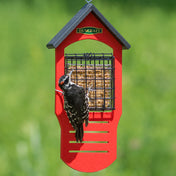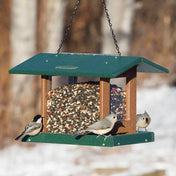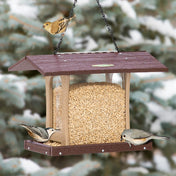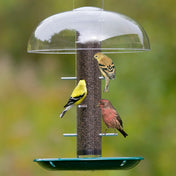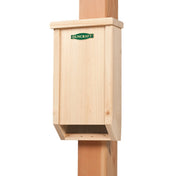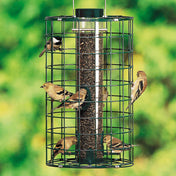With longer days and an abundance of avian activity, your backyard can become a bustling hub for various bird species.
However, the scorching heat presents unique challenges for our feathered friends. Let's explore how to keep them nourished and hydrated during the hottest months.
Top Summer Foods for Backyard Birds
1. Seeds: A Year-Round Staple
- Black-oil sunflower seeds are a favorite among many birds, including Northern Cardinals, House Finches, and Mourning Doves.
- Safflower seeds are less appealing to squirrels and starlings but loved by cardinals and titmice.
- Nyjer (thistle) seeds attract finches like the Lesser Goldfinch and American Goldfinch.
2. Fresh Fruits: A Hydrating Treat
- Offer slices of oranges, apples, or grapes to attract orioles, mockingbirds, and tanagers.
- Grape jelly is a sweet delight for orioles and catbirds. Serve it in small amounts to prevent spoilage.
3. Mealworms: Protein-Packed Snacks
- Live mealworms are excellent for insectivorous birds like Carolina Wrens and Northern Mockingbirds.
- Dried mealworms can be rehydrated for easier consumption.
4. Nectar: Energy for Hummingbirds
- Prepare a simple nectar solution: 1 part white granulated sugar to 4 parts water. Avoid honey or artificial sweeteners.
- Clean feeders every 2-3 days to prevent fermentation and mold growth.
Common Backyard Birds & Their Summer Preferences
- Northern Cardinal: Enjoys sunflower and safflower seeds.
- Chickadee: Prefers sunflower seeds and suet; also eats insects.
- Wren: Feeds on mealworms and suet; rarely eats seeds.
- Blue Jay: Loves peanuts and sunflower seeds.
- Mourning Dove: Ground feeder that eats millet and sunflower seeds.
- Goldfinch: Attracted to nyjer seeds.
- Ruby-throated & Black-chinned Hummingbirds: Seek nectar from feeders and tubular flowers.
Hydration: The Key to Summer Survival
Water is crucial for birds, especially during the summer season, providing:
- Birdbaths: Keep water clean and shallow (1-2 inches deep).
- Drippers or misters: Moving water attracts more birds.
- Shade: Place water sources in shaded areas to keep them cool.
Change the water daily to prevent mosquito breeding and algae growth.
Feeder Maintenance Tips
- Clean feeders weekly with a mild soap solution; rinse thoroughly.
- Inspect for mold or spoiled food daily, especially after rain.
- Use feeders with drainage holes to prevent water accumulation.
Regular maintenance ensures the health of visiting birds and prolongs the life of your feeders.
Natural Food Sources: Planting for the Birds
Enhance your backyard by planting native flora that provides natural food:
- Sunflowers: Seeds for finches and sparrows.
- Salvia and Turk's Cap: Nectar for hummingbirds.
- Elderberry and mulberry trees: Fruits for various bird species.
Native plants not only feed birds but also attract insects, providing additional protein sources.
Protecting Birds from Predators
- Place feeders near shrubs or trees to offer quick escape routes.
- Avoid using pesticides, which can poison birds and reduce insect populations.
- Keep cats indoors or supervise them outside to prevent bird predation.
Creating a safe environment encourages more birds to visit your yard.


